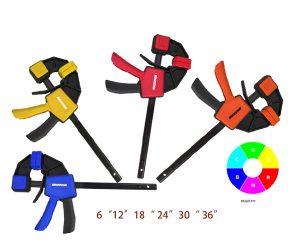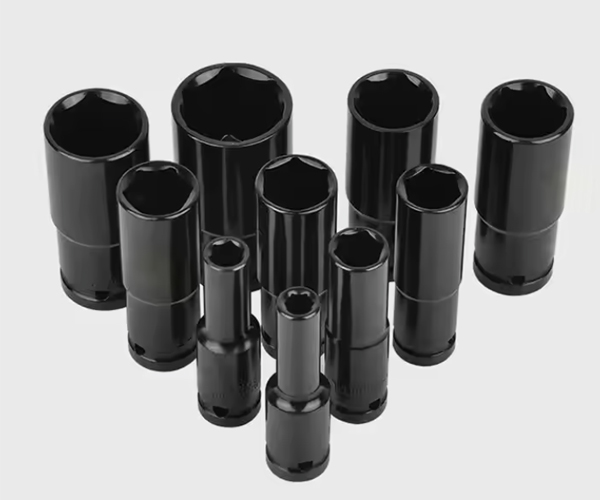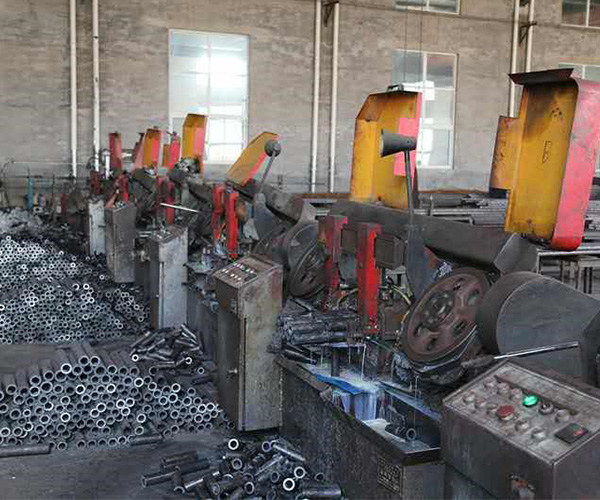Introduction
Woodworking is an age-old craft that combines skill, creativity, and precision. For both professionals and hobbyists, the tools used can significantly impact the quality and efficiency of their work. Investing in high-quality woodworking tools is not just about spending money; it’s about enhancing your woodworking experience and outcomes. In this article, we will explore the reasons why investing in the best woodworking tools, including those from reputable woodworking clamp manufacturers and bar clamp manufacturers, is essential for anyone serious about this craft. Whether you are a seasoned woodworker or just starting, understanding the value of quality tools can transform your projects and elevate your skills.
Understanding the Value of Quality Woodworking Tools
Definition of High-Quality Woodworking Tools
High-quality woodworking tools are crafted with precision, using superior materials and advanced manufacturing processes. These tools are designed to perform specific tasks with greater accuracy, durability, and ease. Unlike their cheaper counterparts, high-quality tools maintain their sharpness, alignment, and functionality over extended periods, even with regular use.
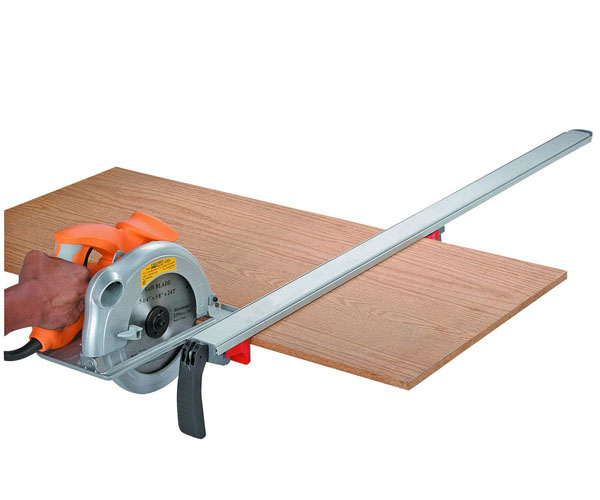
For example, woodworking clamp manufacturers produce clamps with robust construction and precise mechanisms that hold workpieces securely without slipping. Similarly, bar clamp manufacturers focus on creating clamps that provide strong, even pressure across large surfaces, essential for tasks like gluing and assembly.
Differences Between High-Quality and Low-Quality Tools
The differences between high-quality and low-quality tools are stark. Low-quality tools often use inferior materials, which wear out quickly and may fail under stress. They lack the precision and reliability needed for intricate woodworking tasks, leading to inaccuracies and frustrations.
In contrast, high-quality tools are engineered to meet exacting standards. They feature hardened steel, ergonomic handles, and precision-ground edges. These tools are designed for longevity and consistent performance, making them a worthwhile investment for any woodworker.
How Tool Quality Impacts Woodworking Projects
The quality of your tools directly impacts the outcome of your projects. High-quality tools allow for cleaner cuts, more precise measurements, and smoother finishes. They enable you to work more efficiently and confidently, knowing that your tools will perform as expected.
For instance, using a high-quality woodworking clamp from reputable woodworking clamp manufacturers ensures that your pieces are held firmly in place during gluing, preventing misalignment and ensuring a strong bond. Similarly, a well-made chisel maintains its sharp edge longer, allowing for cleaner and more accurate cuts.
Investing in the best woodworking tools is not just about having better tools; it’s about achieving better results. Quality tools enhance your ability to create finely crafted pieces, whether you’re building furniture, carving intricate designs, or constructing practical items.
Benefits of Investing in the Best Woodworking Tools
Precision and Accuracy
One of the most significant benefits of high-quality woodworking tools is the precision and accuracy they offer. These tools are designed to perform tasks with exacting detail, ensuring that each cut, measurement, and joint is as accurate as possible.
For example, a high-quality table saw with a precise fence and sharp blade can make consistent, clean cuts, essential for creating tight-fitting joints and smooth surfaces. Similarly, a reliable measuring tool ensures that your dimensions are accurate, reducing the risk of errors that can compromise your project.
Precision tools also enhance your ability to replicate designs and patterns accurately. This is particularly important for tasks like dovetailing, where exact alignment is crucial for the strength and aesthetics of the joint. High-quality tools give you the confidence to tackle complex projects, knowing that your tools will deliver the precision required.
Durability and Longevity
Investing in high-quality woodworking tools means investing in durability and longevity. These tools are built to withstand the rigors of regular use, providing reliable performance for years, if not decades. This longevity translates to long-term cost savings, as you won’t need to replace your tools frequently.
High-quality tools are made from superior materials, such as hardened steel and robust plastics, which resist wear and tear. For instance, a well-made plane with a high-carbon steel blade can maintain its sharpness longer, reducing the need for frequent sharpening and ensuring consistent performance.
Durability is also crucial for safety. High-quality tools are less likely to break or malfunction during use, reducing the risk of accidents. They are designed to withstand the forces exerted during woodworking, providing a safer and more reliable experience.
Efficiency and Productivity
Efficiency and productivity are enhanced when using high-quality woodworking tools. These tools are designed to perform tasks quickly and accurately, allowing you to complete projects faster and with less effort. They are engineered for smooth operation, reducing the physical strain on the user.
For example, a high-quality power sander with variable speed control and ergonomic design allows you to sand surfaces quickly and comfortably. This efficiency is particularly important for large projects, where time savings can be significant.
Quality tools also minimize downtime. With high-quality tools, you spend less time on maintenance and adjustments and more time on actual woodworking. This increased productivity can lead to more projects completed in less time, enhancing your overall woodworking experience.
Safety
Safety is paramount in woodworking, and high-quality tools play a crucial role in ensuring a safe working environment. Quality tools are designed with safety features that protect the user and reduce the risk of accidents.
For example, a high-quality table saw may include safety features such as a riving knife to prevent kickback, blade guards to protect the user, and emergency stop buttons for quick shutdown. Similarly, high-quality chisels have ergonomic handles that provide a secure grip, reducing the risk of slipping and accidental cuts.
Investing in quality tools means investing in your safety. These tools are less likely to fail or cause accidents, providing peace of mind and allowing you to focus on your craft.
Improved Work Quality
The ultimate goal of any woodworker is to produce high-quality work, and the tools you use play a significant role in achieving this. High-quality tools enable you to create finely crafted pieces with clean cuts, smooth finishes, and precise joints.
For instance, using a high-quality router allows you to create intricate designs and patterns with ease. The precision and control offered by a quality router ensure that your designs are crisp and detailed, enhancing the overall aesthetic of your work.
Similarly, a high-quality plane produces smooth, even surfaces, eliminating the need for extensive sanding and finishing. This improved work quality is noticeable in the final product, whether it’s a piece of furniture, a decorative item, or a functional piece.
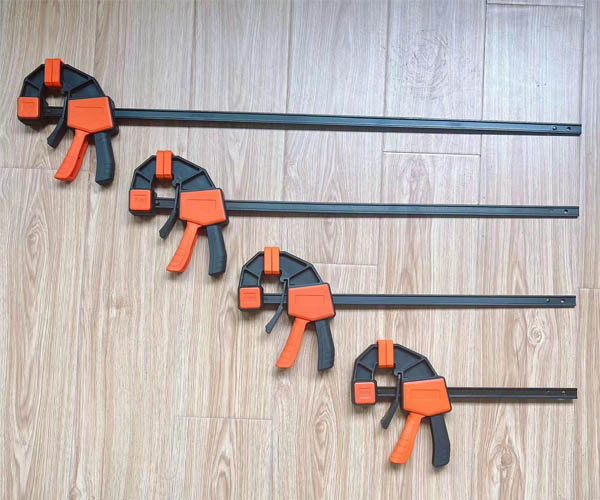
Key Woodworking Tools Worth Investing In
Hand Tools
Hand tools are essential for any woodworker, providing the precision and control needed for detailed work. Investing in high-quality hand tools can significantly enhance your woodworking experience and results.
Chisels
Chisels are indispensable for tasks like carving, paring, and chopping. High-quality chisels have sharp, durable blades made from hardened steel, which maintain their edge longer and provide clean, precise cuts. Ergonomic handles offer a comfortable grip, allowing for better control and reducing fatigue.
Hand Planes
Hand planes are used for smoothing and shaping wood. Quality planes feature precisely machined bodies and blades that can be adjusted for depth and angle, providing consistent, smooth cuts. Investing in a high-quality plane ensures that your surfaces are flat and even, enhancing the overall quality of your work.
Saws
Various saws are essential for different woodworking tasks, such as cutting joints, trimming edges, and shaping pieces. High-quality saws, such as dovetail saws and coping saws, have sharp, durable teeth that provide clean, accurate cuts. They are designed to minimize binding and reduce effort, making your work more efficient and precise.
Power Tools
Power tools significantly enhance productivity and efficiency in woodworking. Investing in high-quality power tools ensures that you have reliable, powerful tools that perform consistently.
Table Saws
Table saws are essential for making precise cuts and shaping wood. High-quality table saws feature powerful motors, precise fences, and durable blades, ensuring clean, accurate cuts. Safety features, such as blade guards and riving knives, enhance user safety.
Routers
Routers are versatile tools used for shaping edges, creating joints, and adding decorative details. High-quality routers offer variable speed control, ergonomic designs, and precision adjustments, allowing for detailed, accurate work.
Sanders
Sanders are used for smoothing surfaces and preparing wood for finishing. Quality sanders have powerful motors, adjustable speeds, and ergonomic designs, providing efficient, comfortable sanding. Investing in a high-quality sander ensures consistent, smooth results with less effort.
Measuring and Marking Tools
Accurate measurements and markings are crucial for precise woodworking. High-quality measuring and marking tools provide the accuracy and reliability needed for detailed work.
Tape Measures
Tape measures are essential for taking accurate measurements. High-quality tape measures have durable tapes with clear, easy-to-read markings and reliable locking mechanisms, ensuring accurate measurements every time.
Squares and Levels
Squares and levels are used for checking angles and ensuring that surfaces are level. Quality squares and levels are precisely machined and feature durable materials, providing accurate readings and long-lasting performance.
Marking Gauges
Marking gauges are used for making precise markings on wood. High-quality marking gauges have sharp, durable points and easy-to-adjust mechanisms, allowing for accurate, consistent markings.
Factors to Consider When Choosing Woodworking Tools
Brand Reputation
Brand reputation is an important factor to consider when choosing woodworking tools. Reputable brands have a history of producing high-quality, reliable tools that meet the needs of woodworkers. Researching and verifying tool brands can help ensure that you invest in tools that will perform well and last long.
Materials and Build Quality
The materials and build quality of woodworking tools significantly impact their performance and durability. High-quality tools are made from superior materials, such as hardened steel and robust plastics, which resist wear and tear. Indicators of good build quality include precise machining, durable materials, and solid construction.
Ergonomics and Comfort
Ergonomics and comfort are important considerations, especially for tools that you will use frequently or for extended periods. Quality tools feature ergonomic designs that provide a comfortable grip and reduce fatigue. Examples of ergonomic features include padded handles, balanced weight distribution, and adjustable components.
Reviews and Recommendations
Reading reviews and seeking recommendations from experienced woodworkers can provide valuable insights into the performance and reliability of woodworking tools. Reliable reviews and expert recommendations can help you make informed decisions and choose tools that meet your specific needs.
Price vs. Value
Balancing your budget with the quality of tools is important. While high-quality tools may come with a higher price tag, they offer long-term value through durability, reliability, and improved performance. Investing in quality tools can save you money in the long run by reducing the need for frequent replacements and repairs.
Common Myths About Woodworking Tools
Myth 1: Expensive Tools Are Just a Luxury
Many people believe that expensive woodworking tools are a luxury rather than a necessity. However, investing in high-quality tools offers practical benefits, such as improved precision, durability, and safety. Quality tools enhance your woodworking experience and outcomes, making them a worthwhile investment.
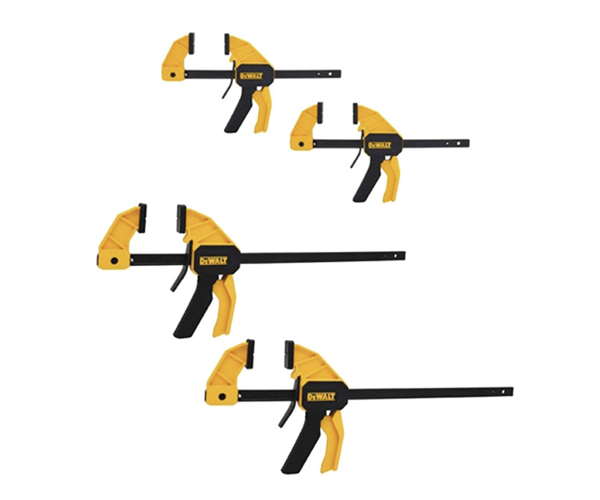
Myth 2: Cheap Tools Are Good Enough for Beginners
Some believe that beginners should start with cheap tools and upgrade later. However, quality tools can aid learning by providing better performance and reliability. Investing in good tools from the start can help beginners develop their skills more effectively and produce better results.
Myth 3: All Tools Are the Same
Another common myth is that all woodworking tools are the same, regardless of quality. In reality, there are significant differences in performance, durability, and precision between high-quality and low-quality tools. Choosing quality tools ensures better results and a more enjoyable woodworking experience.
How to Maintain Your Woodworking Tools
Regular Cleaning and Lubrication
Maintaining your woodworking tools involves regular cleaning and lubrication. Cleaning removes dust, debris, and resin buildup, which can affect performance. Lubrication prevents rust and ensures smooth operation. Follow the manufacturer’s instructions for cleaning and lubricating your tools to keep them in top condition.
Sharpening and Calibration
Keeping your tools sharp and well-calibrated is crucial for precise work. Regular sharpening maintains the cutting edges of tools like chisels and plane blades, while calibration ensures that tools like saws and routers operate accurately. Invest in sharpening stones and calibration tools to maintain the performance of your woodworking tools.
Proper Storage
Proper storage prevents damage and extends the lifespan of your tools. Store tools in a dry, organized space to prevent rust and corrosion. Use toolboxes, racks, and cabinets to keep tools secure and easily accessible. Proper storage also reduces the risk of accidents and ensures a tidy workspace.
Testimonials and Case Studies
Stories from Professional Woodworkers
Professional woodworkers often share stories about the impact of high-quality tools on their work. These testimonials highlight the benefits of investing in quality tools, such as improved precision, efficiency, and safety. Learning from the experiences of professionals can provide valuable insights and inspiration for your own woodworking projects.
Before-and-After Examples
Before-and-after examples illustrate the difference that quality tools can make in your work. Comparing projects completed with low-quality and high-quality tools demonstrates the improvements in precision, finish, and overall quality. These examples show that investing in the best woodworking tools leads to better results and greater satisfaction.
Quotes and Experiences from Hobbyists
Hobbyists who have upgraded their tools often share their experiences and the positive impact on their woodworking. These quotes and experiences provide relatable insights and encourage other hobbyists to invest in quality tools. Hearing from peers can be motivating and help you make informed decisions about your tool investments.
Frequently Asked Questions (FAQs)
What Are the Must-Have Tools for a Beginner Woodworker?
Beginner woodworkers should start with a set of essential tools that cover a range of tasks. Must-have tools include a set of chisels, a hand plane, a dovetail saw, a tape measure, and a marking gauge. Investing in high-quality versions of these tools ensures a solid foundation for learning and improving your skills.
How Do I Know if a Tool Is High Quality?
High-quality tools are typically made from superior materials, such as hardened steel and robust plastics, and feature precise machining and solid construction. Look for reputable brands and read reviews from experienced woodworkers to gauge the quality of a tool. Testing the tool for comfort, ease of use, and performance can also help determine its quality.
Can I Start with Cheaper Tools and Upgrade Later?
While it is possible to start with cheaper tools and upgrade later, investing in quality tools from the beginning can enhance your learning experience and results. Quality tools offer better performance, reliability, and safety, making them a worthwhile investment even for beginners.
How Much Should I Budget for My Woodworking Tools?
The budget for woodworking tools depends on your specific needs and the scope of your projects. Start by investing in a few essential high-quality tools and gradually build your collection as needed. Research prices and prioritize tools that offer the best value for their cost.
Where Can I Buy High-Quality Woodworking Tools?
High-quality woodworking tools can be purchased from reputable hardware stores, specialized woodworking shops, and online retailers. Look for trusted brands and read reviews to ensure that you are buying from reliable sources. Attending trade shows and seeking recommendations from experienced woodworkers can also help you find quality tools.
Conclusion
Investing in the best woodworking tools is essential for anyone serious about the craft. High-quality tools offer numerous benefits, including precision, durability, efficiency, safety, and improved work quality. By choosing tools from reputable woodworking tools manufacturers and bar clamp manufacturers, you can enhance your woodworking experience and achieve better results. Whether you are a beginner or a seasoned professional, investing in quality tools is a decision that will pay off in the long run. Take the time to research and invest wisely, and enjoy the satisfaction of working with the best tools in the industry.

